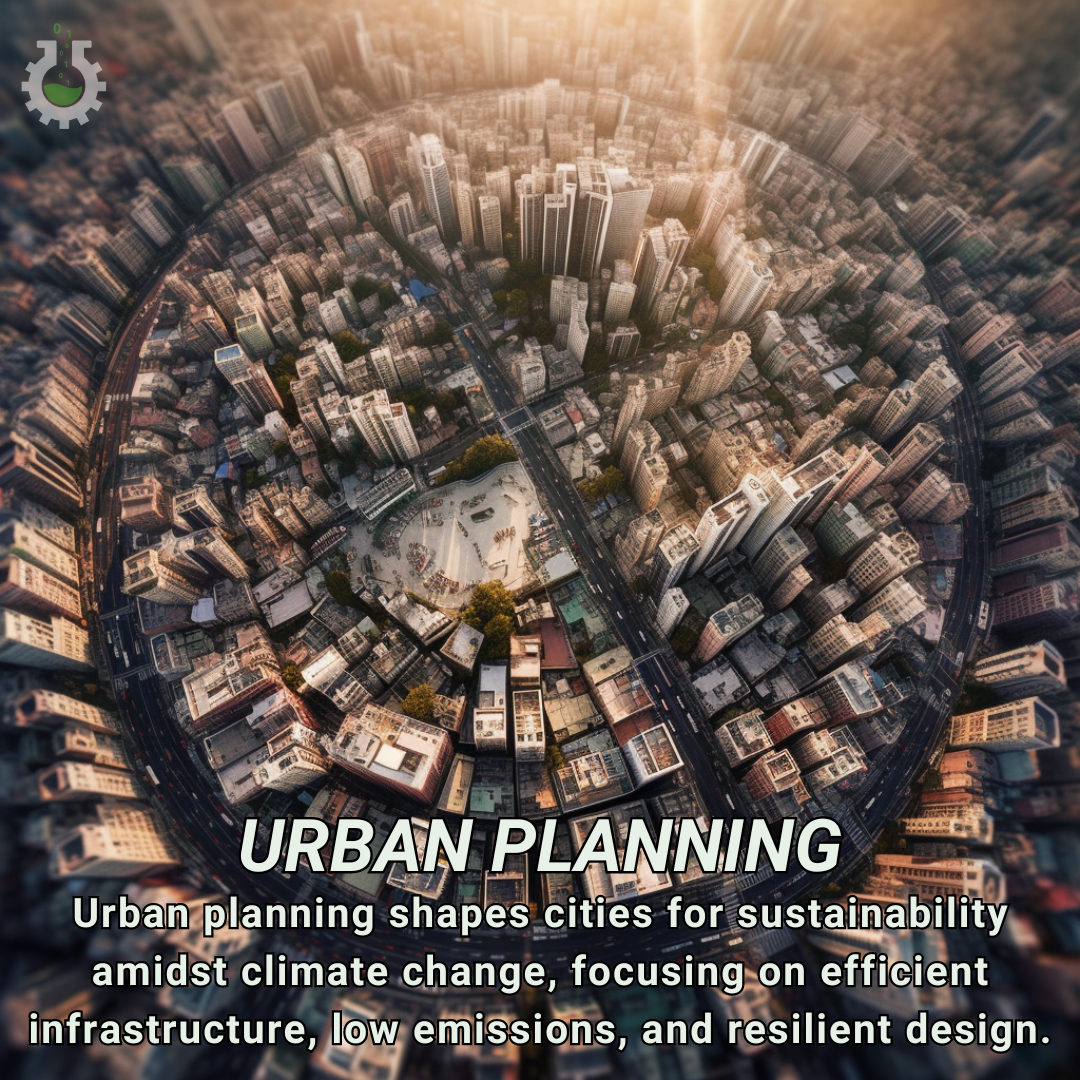May 13, 2024
Climate Change Poster Collection of the Day – Urban Planning
Book a Demo
Today’s Climate Change Poster Collection features Urban Planning, which plays a pivotal role in the fight against climate change, a fact that has become increasingly clear as the impacts of a warming planet manifest in cities around the world. The way we design, build, and manage our urban spaces directly influences our carbon footprint, affecting everything from energy consumption to transportation emissions. At the heart of urban planning is the capacity to shape the built environment to promote sustainable living and reduce the adverse effects of climate change.
One of the fundamental strategies in urban planning to combat climate change is the development of compact cities. By focusing on density, mixed-use developments, and vertical growth, compact cities can reduce the need for transportation, lower energy consumption, and preserve natural habitats from urban sprawl. This approach not only curtails greenhouse gas emissions but also enhances the quality of life by creating walkable neighborhoods with easy access to amenities and services.
Incorporating green infrastructure is another critical aspect of urban planning that addresses climate change. Green roofs, urban parks, and permeable pavements are just a few examples of how cities can mitigate the urban heat island effect, manage stormwater runoff, and improve air quality. These features act as carbon sinks, provide shade, and help to cool urban areas, making cities more resilient to heatwaves and other extreme weather events exacerbated by climate change.
Moreover, urban planning must prioritize sustainable transportation systems. By designing cities with efficient public transit, bike lanes, and pedestrian pathways, planners can encourage a shift away from reliance on personal vehicles. This not only reduces emissions but also alleviates traffic congestion and fosters a healthier population through increased physical activity.
The integration of renewable energy sources into urban planning is equally essential. Cities have the unique opportunity to lead by example in the transition to clean energy. Solar panels on rooftops, wind turbines integrated into buildings, and the use of geothermal heating and cooling systems can drastically cut down the reliance on fossil fuels and make urban centers self-sustaining in terms of energy needs.
Furthermore, urban planning must be adaptive and resilient. Climate change brings unpredictable challenges, and cities must be designed to withstand and quickly recover from natural disasters. This means investing in robust infrastructure, creating emergency preparedness plans, and ensuring that the most vulnerable communities have the resources and support to cope with the impacts of climate change.
Urban planning is a critical tool in the global effort to address climate change. By creating compact, green, and resilient cities with sustainable transportation and energy systems, urban planners can help mitigate the effects of climate change and pave the way for a sustainable future. As our urban areas continue to grow, the decisions we make today will determine the livability of our cities for generations to come. It is imperative that urban planners, policymakers, and citizens work together to envision and build cities that not only survive but thrive in the face of climate change.
Discover an inspiring collection of climate change posters.



